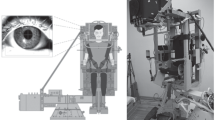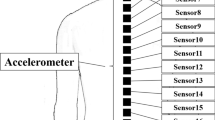Abstract
The ability voluntarily to stabilize the head in space during lateral rhythmic oscillations (0.59±0.09 Hz) of the trunk has been investigated during microgravity (μG) and normal gravity (nG) conditions (parabolic flights). Five healthy young subjects, who gave informed consent, were examined. The movements were performed with eyes open or eyes closed, during phases of either μG or nG. The main result was that head orientation with respect to vertical may be stabilized about the roll axis under μG with, as well as without vision, despite the reduction in vestibular afferent and muscle proprioceptive inputs. Moreover, the absence of head stabilization about the yaw axis confirms that the degrees of freedom of the neck can be independently controlled, as was previously reported. These results seem to indicate that voluntary head stabilization does not depend crucially upon static vestibular afferents. Head stabilization in space may in fact be organized on the basis of either dynamic vestibular afferents or a short-term memorized postural body schema.
Similar content being viewed by others
Author information
Authors and Affiliations
Additional information
Received: 4 October 1995 / Accepted: 30 September 1996
Rights and permissions
About this article
Cite this article
Amblard, B., Assaiante, C., Fabre, JC. et al. Voluntary head stabilization in space during oscillatory trunk movements in the frontal plane performed in weightlessness. Exp Brain Res 114, 214–225 (1997). https://doi.org/10.1007/PL00005630
Issue Date:
DOI: https://doi.org/10.1007/PL00005630




